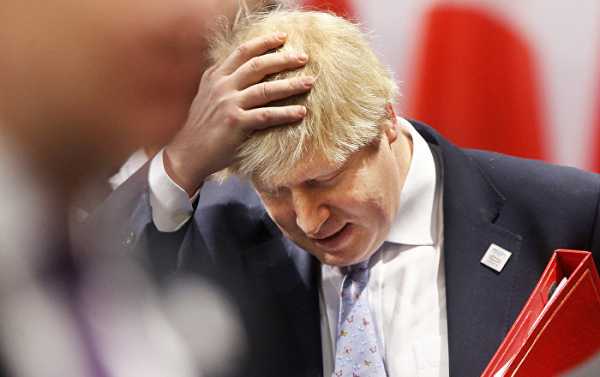
A Trump-style take on taxation has been hailed by the British former senior Cabinet minister Boris Johnson in what could be an instalment for a Conservative leadership manifesto.
In this weekly column, the former Foreign Minister lashed out against “canvassing tax rises,” saying Britain should ” be looking not at rises but at cuts to income tax, capital gains tax and stamp duty.”
Mr. Johnson set as an example the current US policies, suggesting the economic growth on the other side of the Atlantic is being driven by the administration of President Donald Trump.
“I know it is not fashionable to point this out, but the United States currently boasts economic growth rates far in excess of this country, at about 4.5 per cent, and with record low unemployment — and that growth is being driven not just by the US government’s decision to cut taxes and regulation, but perhaps even more by psychology: by the sense that the government wants to cut taxes, wants to liberate and energize people. Do we send out that signal, here in this country? I am not so sure.”
Mr. Johnson also slammed the ‘divorce bill’ — Britain’s share of the liabilities it is expected to pay off when it leaves the European Union.
“It seems very odd to be proposing tax hikes when we are about to hand over £39 billion to the EU for nothing in return, and when a pro-enterprise tax-cutting approach to government would actually deliver the revenues to pay for the NHS and so many other civilised priorities. That should be our ambition.”
The MP’s arguments didn’t sit well with some, as claims of Mr. Johnson’s hidden agenda surfaced online.
The Tax Cuts and Jobs Act, introduced by Trump administration in 2017, reduced the corporate tax rate from 35% to 21% and lowered the tax rate for top earners from 39.6% to 37%. In June 2018, the US president hailed his six-month-old tax cut package and its effect on the US economy.
It is not the first occasion when Mr. Johnson addressed Britain’s future, whether it comes to economic or soft power development. He has previously made loud statements, championing the notions of “Global Britain,” “Britain as a first rate military power” and Britain in need of chucking the Chequers agreement.
His statements, following his exit from the Cabinet and the Foreign Minister role this summer, gave rise to speculation Mr. Johnson is prepping for a leadership role, aiming to take over Theresa May’s spot.
‘New Hero’
Mr. Johnson citing Mr. Trump’s taxation policy as a model for British economy is the latest in the list of cases when friendly rhetoric has surfaced between the US president and the UK politician, claimed to put ambition and career politics first.
Prior to his July visit to the UK, the US president said Boris Johnson would make a great prime minister. “I am just saying I think he would be a great Prime Minister…. I think he’s got what it takes,” Trump said, adding that UK Prime Minister Theresa May was “a nice person.”
When this summer, the UK shadow foreign secretary, Emily Thornberry, asked Mr. Johnson what he admires about Donald Trump, she said:
“The Foreign Secretary clearly has a new hero and we know who he is — the clue is in the hair.”
Mr. Johnson then listed Mr. Trump’s response to events in Syria, his efforts to solve the “problem of the nuclear armed North Korea” and his call for more defense spending by NATO members.
In his article, the MP for Uxbridge and South Ruislip decried the government’s management of the HS2 high-speed rail scheme and called for more spending on the National Health Service (NHS).
“But I am afraid I am not convinced that the answer is immediately to turn to the hard-pressed taxpayer, when Britain is now by no means a low-tax economy compared with several other jurisdictions in Europe,” Mr. Johnson concluded.
Sourse: sputniknews.com






